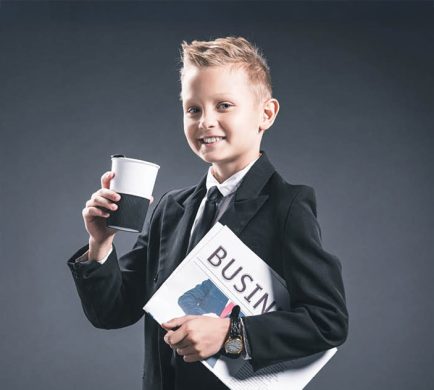By Georgina Hooper
For students who need to take a deep breath and ahhh, breath it out, Mindful Thoughts for Students is their guide to transforming what can be a stressful experience into one of the most positive and enriching experiences of your life.
Studying can be a stressful and anxious process, with deadlines and a focus on results taking away from the pleasure of learning. Mindful Thoughts for Students is an astute collection of 25 insights into how practicing awareness whilst studying can transform learning into a positive experience every day.
In this beautifully illustrated little book, Georgina Hooper guides you on a thoughtful journey through the practice of studying with joyful intention. From mindfully managing the art of deadlines to cultivating a lifelong curiosity for knowledge, she connects us to the path of learning for the love of it.
Self-efficacy is the belief in our own abilities to meet challenges and successfully complete tasks. It is the kind of belief that can fill our sails with enough wind to propel us through our learning journey and protect ourselves from feedback that might otherwise leave us feeling like a vessel full of holes. For some, strong confidence in learning seems to come naturally. But not all of us have a shining perception of our ability as students. A lack of efficacy can be the anchor that drags us down, preventing us from moving forwards. Without the confidence to learn, we might even keep ourselves safely docked in the bay, checked out of learning entirely before we even start. So how can mindfulness help us fortify our self-efficacy and give us the courage to learn?
LETTING GO
Our self-efficacy is shaped by the events of our past and influences our ideas of the future. With the practice of mindfulness, we can let go of the past. Our preconceived ideas about how good we are (or aren’t) don’t serve us when they are built on experiences that we consider to be failures. A loss or failure is not a strike against our character or ability.
If anyone has ever watched a baby or small child, it is clearly evident that the process of learning to walk involves a lot of falling down. Recognizing this as an inherent part of learning will equip you with the resilience necessary for success. Self-efficacy gives us the courage to fall because we know that winning is not the be-all and end-all. When I was very young, my father printed and laminated a poem for me by Norman Vincent Peele, part of which captured the importance of self-belief: ‘Life’s battles don’t always go to the stronger or faster man. But sooner or later, the man who wins is the man who thinks he can.’
SAVOUR SUCCESS
The belief that you can succeed is built from the experiences where you did succeed, so recognizing your successes is a vital way to build your self-efficacy. Mindfulness can help us not only pause to celebrate our successes but also to savour them. So often in our journey of learning, our sights are always set on the distance, looking ahead to the next assignment, the next test, the next semester. But when we cultivate living in the present moment through a practice of mindfulness, we give ourselves the opportunity to relish the moments of achieving.
Savouring your achievements is beyond recognizing them. It is feeling them. When we achieve something, we might feel powerful, elated, excited, surprised, or thrilled. If we don’t slow down enough to notice these significant moments in our journey of life and study, they can lose their impact, and the reward is watered down, drowned out by the lists of tasks that are still waiting to be done. Frame your degree or diplomas and put them on the wall. Take yourself out to lunch when you finish an assignment and toast yourself for a job well done. Tick off your lists as you get through them, and set aside time to notice and dwell on the times you meet your goals, no matter how small they are. Cultivate the verbal reinforcement of your capabilities by surrounding yourself with people whom you admire and who speak positively about you and themselves.
THE FIRST STEP
Don’t make judgments on your capacity to learn just because there are things you don’t know or can’t do. Not knowing is simply an opportunity to learn something you have not yet mastered. I like to remind my students when they say ‘I can’t do this,’ to rephrase with ‘I can’t do this yet. Acknowledging or discovering what we don’t know how or can’t yet do is the first step to mastery. All you need is the self-belief that you can do what needs to be done, as long as you try hard enough.
Being smart is not a thing we are or are not, but is developed and acquired over time. It is estimated that our brain has around 100 billion neurons – around the same number of stars as there are in the Milky Way galaxy. Each neuron can form thousands of links, and these synaptic pathways are being made and pruned
constantly. Your brain’s ability to learn can be trained and cultivated, like any muscle. “Is very simple awareness can be a powerful beacon to return to, whenever you need reminding that your capacity to learn is probably far greater than you give yourself credit for.
An excerpt from Mindful Thoughts for Students: Nurture your mind, flourish in Life







